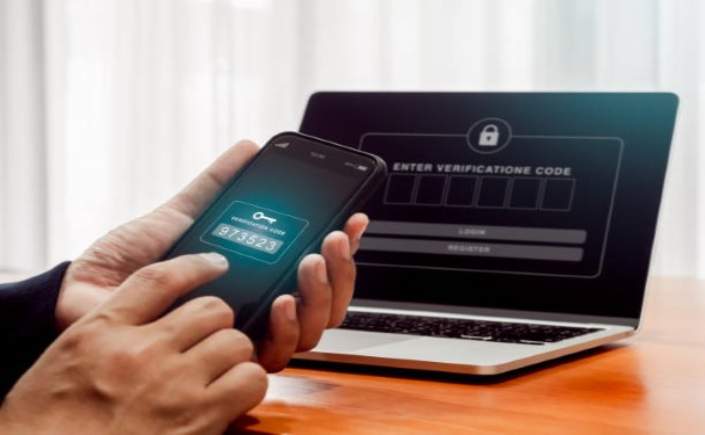As the reliance on SMS verification technology continues to grow, so too do the concerns surrounding its security and efficacy. The inherent limitations of traditional SMS methods have prompted organizations to explore alternative verification systems that leverage advancements in multi-factor authentication and biometric solutions. With the emergence of machine learning techniques aimed at identifying suspicious activities, the landscape of user verification is on the brink of significant change. What implications will these innovations have for user experience and security measures in an increasingly digital world?
Current Limitations of SMS Verification
Despite its widespread adoption, SMS verification technology is hindered by significant vulnerabilities and limitations that compromise its effectiveness as a secure authentication method. The primary concern lies in the susceptibility of SMS to interception and spoofing, which can render the SMS verification service ineffective against sophisticated attacks. Cybercriminals can exploit weaknesses in the mobile network infrastructure to gain unauthorized access to sensitive accounts, highlighting the inherent risks associated with traditional phone verification services.
Additionally, the reliance on a single point of failure—mobile devices—creates further challenges. If a user loses their phone or if it is compromised, the ability to receive a verification code can be severely jeopardized. Furthermore, many users resort to cheap SMS verification services, which may not adhere to stringent security protocols, further increasing the risk of fraud.
Moreover, the delays associated with the verify SMS service can lead to frustration and a poor user experience, as users must wait to receive a verification code. Consequently, while SMS has been a popular choice for two-factor authentication, its limitations necessitate a reconsideration of its role in the evolving landscape of digital security.
Emerging Alternatives and Innovations
In light of the vulnerabilities associated with SMS verification, emerging alternatives and innovations are being explored to enhance the security and reliability of authentication processes. One significant trend is the transition toward app-based authentication methods, such as Google Authenticator or Authy, which generate time-sensitive codes independent of mobile networks. These alternatives mitigate the risks posed by SMS interception.
Furthermore, the use of biometric authentication, including fingerprint and facial recognition, is gaining traction. This innovation offers a seamless user experience while providing robust security. Additionally, some companies are developing solutions that integrate SMS verification services with advanced machine learning algorithms to detect unusual patterns and flag potential security threats.
For businesses seeking flexible options, services that allow users to buy phone numbers for SMS verification or rent phone numbers for SMS verification are becoming increasingly popular. This approach can provide added layers of anonymity and security.
Moreover, utilizing a virtual US mobile number for SMS verification can streamline processes while reducing costs, as there are now cheap SMS verification options available that cater to a diverse range of needs. As these alternatives evolve, they promise to redefine the future landscape of authentication technologies.
Security Threats and Challenges
Numerous security threats and challenges continue to undermine the effectiveness of SMS verification, making it imperative for organizations to reassess their reliance on this method for user authentication. While SMS verification has traditionally been viewed as a reliable and cost-effective solution, it is increasingly vulnerable to various forms of attacks, including SIM swapping, phishing, and man-in-the-middle attacks.
These security threats not only compromise user data but also expose organizations to significant financial and reputational risks. The ease of obtaining cheap SMS verification services has further exacerbated this issue, as attackers can exploit these low-cost options to launch large-scale attacks without substantial investment.
Moreover, the inherent limitations of SMS technology, such as poor delivery rates and potential delays, present additional challenges. As a result, organizations must consider the adequacy of SMS verification in safeguarding sensitive information.
A comprehensive evaluation of current security protocols and the exploration of alternative authentication methods, therefore, become essential steps in addressing these evolving threats. Ultimately, as the landscape of cyber threats continues to evolve, the reliance on SMS verification must be critically examined to ensure robust security measures are in place.
Future Trends and Predictions
As organizations seek to enhance security measures in response to evolving cyber threats, the future of SMS verification technology is likely to be shaped by advancements in alternative authentication methods and emerging regulatory standards. The demand for secure and efficient verification solutions will drive innovation, with emphasis on integrating multi-factor authentication (MFA) and biometrics alongside traditional SMS methods.
The current landscape shows a surge in the availability of services like smsverification.xyz, which offers fast, secure, and reliable SMS verification services worldwide. Businesses looking for cost-effective solutions can find the cheapest SMS verification options that still maintain robust security protocols. Furthermore, organizations can buy phone numbers for SMS verification from the smsverification.xyz site, ensuring a streamlined process that caters to diverse needs.
As the industry matures, we can expect the regulatory environment to tighten, compelling service providers to comply with stricter data protection laws. In this context, if you search for reliable and cheap SMS verification services, it will be crucial to choose providers that not only prioritize cost-effectiveness but also adhere to evolving legal and security standards. This will ensure a sustainable future for SMS verification technology.
Conclusion
In conclusion, the future of SMS verification technology is set to evolve significantly as organizations shift towards more secure alternatives. The limitations of SMS as a verification method, coupled with emerging innovations in multi-factor authentication and biometric solutions, will drive this transformation. Enhanced security protocols, informed by machine learning and regulatory standards, will address existing vulnerabilities. The focus will increasingly be on sustainable verification technologies that prioritize user safety in an ever-advancing digital landscape.

